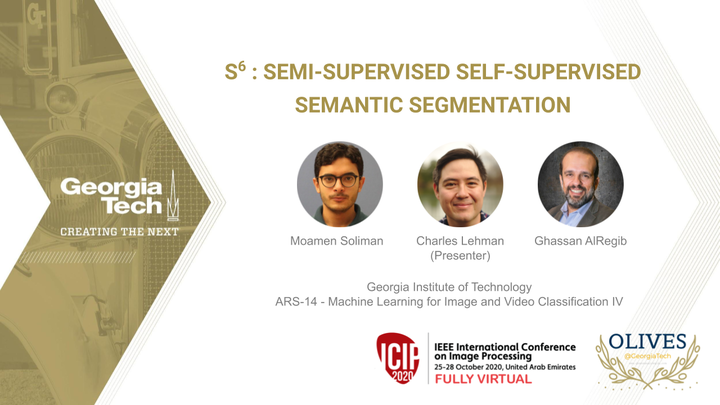
Abstract
Semi-supervised learning provides a means to leverage unlabeled data when labels are expensive to obtain. In this work, we propose a constrained framework that better learns from unlabeled data. The proposed algorithm adds an auxiliary task, image reconstruction, to the target segmentation task. The extra reconstruction task improves the model’s geometric sense of different textures in an image. It happens that this improvement in geometrical reasoning of the model is transferable from reconstruction to segmentation since they both share a common part of the architecture. Such extra task allows the trained model to have richer representations and better geometric intuition. The presented results show that the proposed constrained framework achieves a boost in mean Intersection over Union by 18% than unconstrained one when using 2% of labeled examples. The boost in performance and reduction in amounts of labeled data is crucial for applications in which obtaining labels is expensive and labor intensive process such as Biomedical Imaging and Seismic Interpretation.